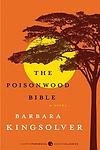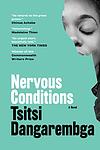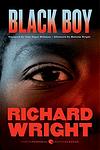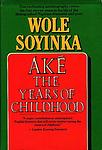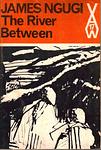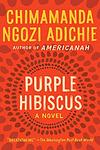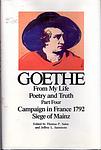The Greatest "Coming of age, Africa" Books of All Time
Click to learn how this list is calculated.
This list represents a comprehensive and trusted collection of the greatest books. Developed through a specialized algorithm, it brings together 300 'best of' book lists to form a definitive guide to the world's most acclaimed books. For those interested in how these books are chosen, additional details can be found on the rankings page.
Genres
The "Coming of age" category of books typically refers to stories that explore the transition from adolescence to adulthood. These books often focus on the challenges and experiences that young people face as they navigate the complexities of growing up, including issues such as identity, relationships, sexuality, and personal growth. Coming of age stories can be set in any time period or cultural context, and may feature protagonists of any gender, race, or background. Overall, the genre offers readers a glimpse into the universal struggles and triumphs of youth, and the process of becoming a fully realized adult.
The "Africa" category for books encompasses literature that is set in or about the continent of Africa, its people, cultures, and history. This category includes a diverse range of genres, including fiction, non-fiction, memoirs, biographies, and historical accounts. The books in this category explore the complexities of African societies, their struggles, triumphs, and the impact of colonialism and globalization on the continent. The Africa category offers readers a window into the rich and diverse cultures of Africa, and the challenges and opportunities facing the continent in the modern world.
Countries
Date Range
Reading Statistics
Click the button below to see how many of these books you've read!
Download
If you're interested in downloading this list as a CSV file for use in a spreadsheet application, you can easily do so by clicking the button below. Please note that to ensure a manageable file size and faster download, the CSV will include details for only the first 500 books.
Download-
1. The Poisonwood Bible by Barbara Kingsolver
The Poisonwood Bible is a novel that follows the experiences of a missionary family in the Belgian Congo during the 1960s. The story is told from the perspective of the wife and four daughters of the Baptist minister who drags his family into the politically volatile Congo on a mission to save souls. The novel explores themes of cultural arrogance, religious zeal, and the clash of Western and African values, as well as the personal growth and self-discovery of the women in the family as they grapple with the harsh realities of their new life and the fallout from their father's single-minded vision.
-
2. Nervous Conditions by Tsitsi Dangarembga
"Nervous Conditions" is a semi-autobiographical novel set in colonial Rhodesia in the 1960s. The story follows a young girl from a poor family who gets the opportunity to receive an education after her brother's death. Despite the struggles she faces - including culture shock, racism, and the inherent sexism in both her native and adopted cultures - she perseveres and manages to succeed. The novel explores themes of race, colonialism, and gender through the lens of a young African woman's coming-of-age story.
-
3. Black Boy by Richard Wright
"Black Boy" is an autobiographical account of a young African-American boy growing up in the South during the early 20th century. The book explores his experiences with extreme poverty, racism, and his struggle to find his place in a society that marginalizes and devalues him. The protagonist's desire for self-expression and understanding leads him to a love of literature and writing, providing him with a means to challenge and critique the oppressive social structures around him.
-
4. The African Child by Camara Laye
"The African Child" is a semi-autobiographical novel that follows the journey of a young boy from his childhood in Guinea to his adolescence. The narrative captures the boy's experiences growing up in a traditional African society, his rites of passage, his relationship with his family, particularly his blacksmith father, and his eventual departure for studies in France. The book provides a vivid portrayal of the rich cultural traditions, beliefs, and values of the Malinke people, while also exploring themes of identity, change, and the tension between tradition and modernity.
-
5. Ake: The Years Of Childhood by Wole Soyinka
"Ake: The Years of Childhood" is a memoir that chronicles the early years of a Nigerian boy growing up in the town of Ake. Set in the 1940s, the book vividly captures the author's experiences, from his close-knit family life to his encounters with colonialism and the struggle for independence. Through his insightful and lyrical prose, the author takes readers on a nostalgic journey filled with rich cultural traditions, humorous anecdotes, and poignant reflections on the complexities of childhood.
-
6. The River Between by Ngugi wa Thiong'o
"The River Between" explores the lives of the Gikuyu people living in the Kenyan highlands during the early days of white settlement. The novel focuses on the struggle between two villages, each with differing views on the encroaching influence of the Christian missionaries. The protagonist, a young man torn between the traditional values of his people and the new ideas brought by the missionaries, serves as a symbol of the larger conflict. The narrative delves into themes of love, cultural identity, religious conflict, and the struggle for independence.
-
7. Purple Hibiscus by Chimamanda Ngozi Adichie
"Purple Hibiscus" follows the story of a 15-year-old Nigerian girl, Kambili, and her older brother Jaja, who live a privileged life in Enugu. However, their father is a religious fanatic and a domestic tyrant. The siblings are sent to their Aunty Ifeoma's home, a university professor, who provides them a taste of freedom and shows them a different way of life outside their father's oppressive rule. The novel explores themes of colonialism, religious fanaticism, and the post-colonial political situation in Nigeria.
-
8. The Bride Price by Buchi Emecheta
"The Bride Price" is a novel that explores the life of a young Nigerian girl who, despite her father's disapproval, dreams of furthering her education. After her father's death, she is forced into an arranged marriage due to cultural traditions, but she defies the system and elopes with her lover. However, the consequences of unpaid bride price haunt her, leading to a tragic ending. The book highlights the clash between traditional African values and modern aspirations, the struggles of women in patriarchal societies, and the impact of colonialism on African cultures.
-
9. The Last Harmattan Of Alusine Dunbar by Syl Cheney-Choker
"The Last Harmattan of Alusine Dunbar" is a poignant and introspective novel that follows the life of Alusine Dunbar, a young man from Sierra Leone who is haunted by the memories of war and loss. Set against the backdrop of a country recovering from civil war, the story delves into Alusine's journey of self-discovery, as he navigates the complexities of love, family, and identity. Through vivid storytelling and lyrical prose, the book explores themes of resilience, healing, and the enduring power of hope.
-
10. Chanda's Secrets by Allan Stratton
Chanda's Secrets is a poignant story set in Sub-Saharan Africa, where the protagonist, a sixteen-year-old girl, grapples with the harsh reality of AIDS in her community. The novel explores the stigma and fear associated with the disease, as well as the courage and resilience of its characters. The protagonist's unwavering determination to keep her family together, despite societal pressures and personal tragedy, forms the crux of the narrative.
-
11. Boyhood: Scenes from provincial life by J M Coetzee
"Boyhood: Scenes from Provincial Life" is a semi-autobiographical novel that explores the author's childhood in South Africa during the apartheid era. The narrative delves into the complexities of family dynamics, racial tension, and the struggle of a young boy trying to understand his place in a divided society. The protagonist grapples with his identity, torn between his Afrikaner heritage and his English schooling, while also navigating the trials of adolescence. The book offers a poignant and often painful reflection on the formative years of a boy growing up in a fraught and turbulent time.
Reading Statistics
Click the button below to see how many of these books you've read!
Download
If you're interested in downloading this list as a CSV file for use in a spreadsheet application, you can easily do so by clicking the button below. Please note that to ensure a manageable file size and faster download, the CSV will include details for only the first 500 books.
Download